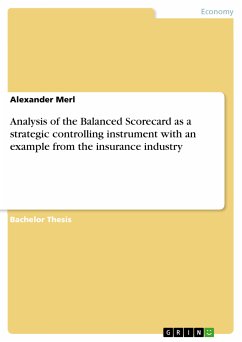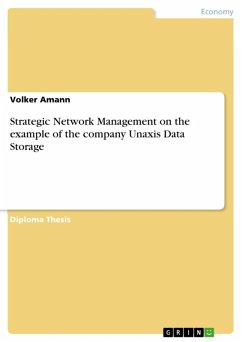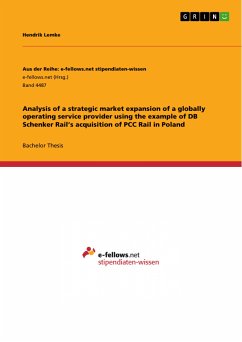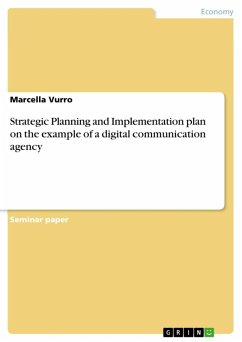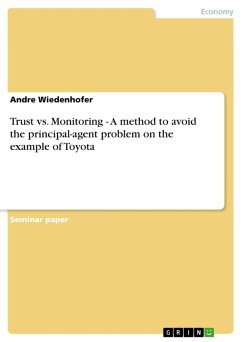Bachelor Thesis from the year 2007 in the subject Business economics - Business Management, Corporate Governance, grade: 1,7, University of applied sciences, Neuss (FOM Fachhochschule für Oekonomie & Management Neuss), language: English, abstract: In view of the growing competition, the increased change in customers' wants and the potential of new communication and information technologies, more and more companies are faced with the need to permanently adjust and further develop their processes, products and offer. To be able to exist in the market, a company must be in a position to recognise future developments early and include them in the strategy. A company should therefore use management instruments which make it able to adjust strategies quickly and communicate them transparently in the whole company. There is increasing criticism of the classical controlling instruments. It is argued that controlling is supposed to provide management relevant data for the management which do not only include financial historical information as so far, but also include future related non-monetary figures. Against this background the Balanced Scorecard (BSC) is becoming more important. It extends the previous focus on finance issues to assess the performance of a company with a range of other aspects and ratios. The customer perspective, the internal process perspective and the learning and development perspective are supposed to be considered equally next to the financial perspective in the BSC. The targets of this thesis are split into a main target and a sub target. The main target of this paper is split again into two parts: The first part of the main target is to show and to explain the relevant theoretical framework of the BSC, in particular to strategic controlling. The second part of the main target is to analyse the BSC as a strategic management system and to give an overview about this strategic controlling tool as it is seen in academic literature. The sub target of this paper is to provide a link between theory and practice by applying the theory to a current example taken from the insurance industry. The result is a recommendation for a BSC as a strategic controlling instrument for that specific insurance company. With this specific BSC for an insurance company comes also a tool for a well structured evaluation of the chances and risks involved with its application.
Dieser Download kann aus rechtlichen Gründen nur mit Rechnungsadresse in A, B, BG, CY, CZ, D, DK, EW, E, FIN, F, GR, HR, H, IRL, I, LT, L, LR, M, NL, PL, P, R, S, SLO, SK ausgeliefert werden.

